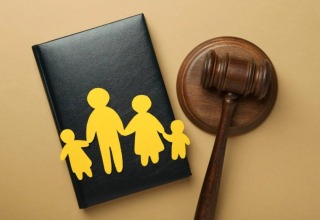Many people envy gig workers because they believe it can be a glamorous life, such as being a DJ at red-carpet events, a freelance writer, a jazz musician in a nightclub, a fitness trainer, a tutor working abroad and the long list goes on. However, there’s more to the story. In today’s modern world, the gig economy is booming. This means that it’s a labor market different from the traditional workforce. Instead, the jobs aren’t permanent but characterized as freelance work, short-term contracts and on-demand jobs.
Receiving Wages à la Carte
Gig workers have the advantage in that their work environment is flexible. As career guiding platform Indeed.com describes it, a gig worker is paid based on à la carte projects they complete.
Some job seekers enjoy gig work and the numerous opportunities it presents for specialized work across various industries. However, being an independent worker doesn’t always mean that benefits or protection are available to them.
Workplace Laws Protecting Employees
A gig worker is not an employee but an independent contractor. Workplace laws were designed to protect employees. Some gig companies get away with hiring individuals as gig workers and not paying them decent wages or offering them healthcare insurance. Or if there’s an injury on the job, the individual would not receive workers’ compensation. Gig companies don’t worry about Social Security and Medicare taxes for gig workers, and these workers are generally responsible for their own payroll taxes.
Those on the job can also easily become misclassified by app-based companies and called independent workers instead of employees. This alone drives down wages and strips protection from predominantly working people of color and working immigrants. Misclassification can create a second-tier workforce where many folks cannot reach equality on the job.
Suing for Unpaid Wages, Benefits, Damages
All workers have rights, including gig workers and those who have been misclassified as independent contractors. If you suspect this is the case, then it’s recommended that you contact your state’s employment agency. The Internal Revenue Service, or IRS, can also determine someone’s worker status. Also, the Department of Labor, or DOL, can be helpful as this agency oversees the enforcement of misclassification under the Fair Labor Standards Act (FLSA).
A worker can sue the company for unpaid wages, benefits and/or damages. There are misclassification lawyers who can also help the individual being exploited and hold the employer liable. This expert can guide you on your legal rights and options.
Passing Legislation for Stronger Labor Laws
Some states are passing measures to provide gig workers with more protections, including minimum wage guarantees and paid sick leave. In 2024, the Biden administration’s Labor Department announced a new federal rule that would make it harder for employers to treat workers as independent contractors rather than employees. It was immediately challenged in court by a network of freelance writers and editors.
Still, the job seeker needs to be aware when using digital platforms that connect them as independent workers to short-term jobs or projects in various industries. Some gig apps leave much to be desired, including a lack of work, low pay, high demands, unfair tipping systems or not having work available in your area.
It is estimated that at least 42 million people in the United States are engaged in some form of gig work. However, not all of these jobs are accurately classified. All workers need government-set ground rules to ensure that working people are properly treated.






















